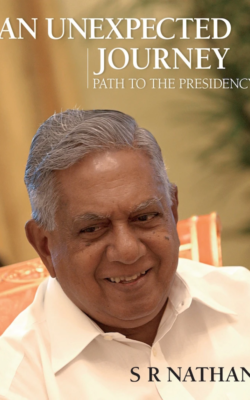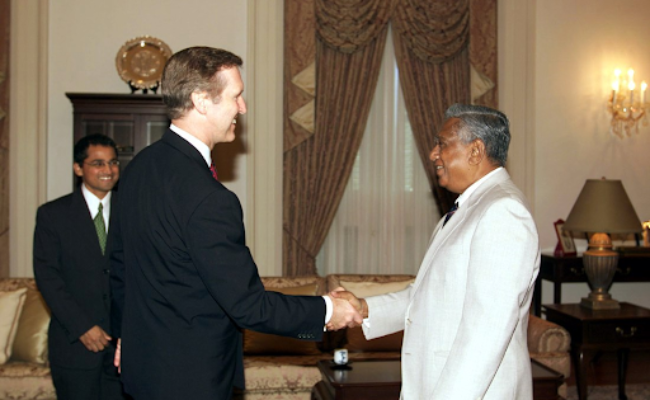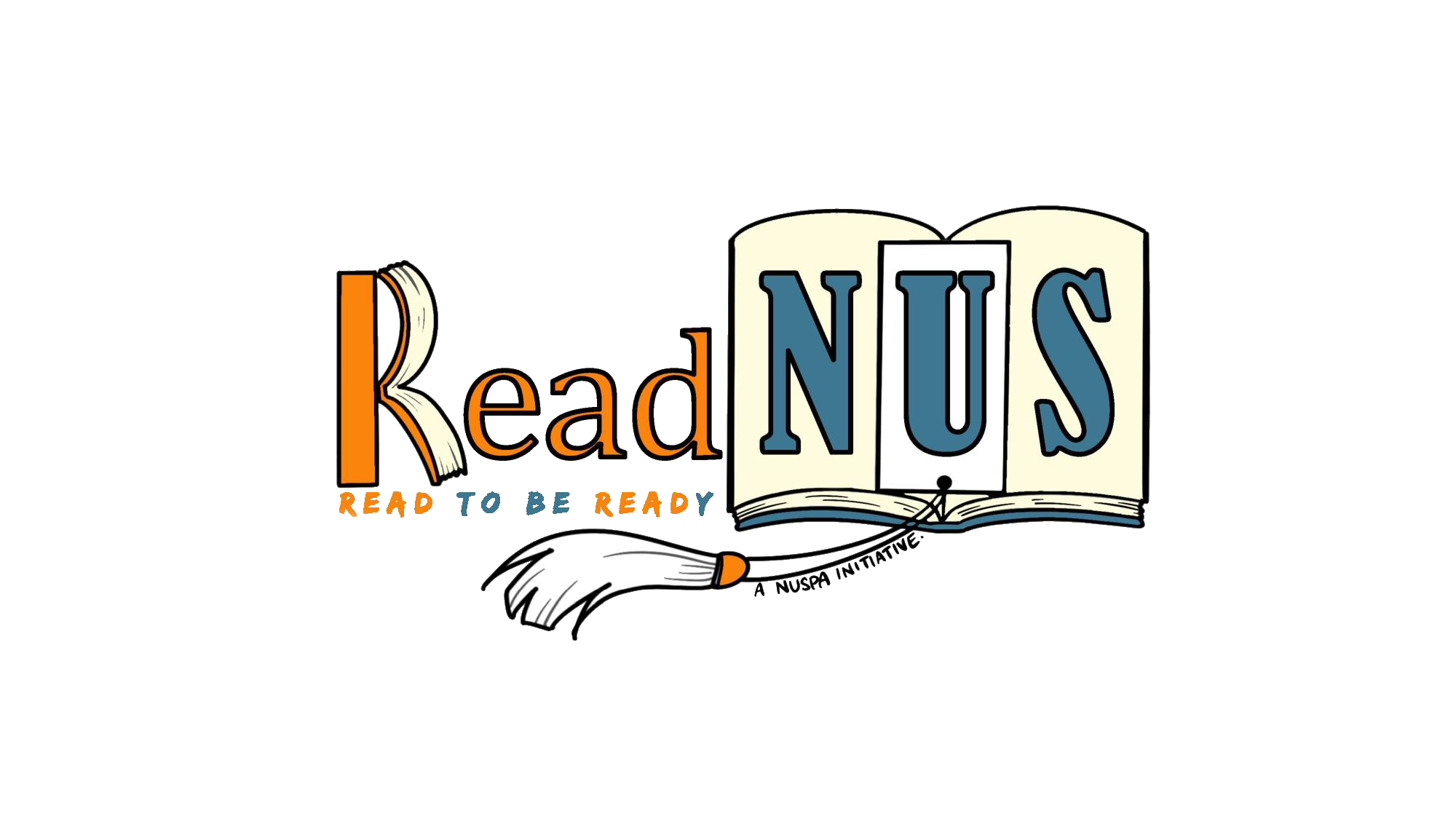6 Valuable Takeaways from An Unexpected Journey: Path to the Presidency

Most of us in our 20s might remember seeing the portraits of President S.R. Nathan and his wife Umi gracing the school hall in our primary school days, as we sang the national anthem and gathered for other activities. His appearances at yearly National Day Parades and on TV to raise funds for the President’s Challenge initiative are perhaps some other memories that we might recall about him. But President Nathan was much more than just a ceremonial head of state who shook hands with the masses and represented Singapore in hosting foreign leaders and dignitaries. His experience as an adult student who clinched a diploma at the age of 30 after being expelled from secondary school and courage in negotiating with terrorists who had hijacked the Laju ferryboat in 1974 were pivotal moments in his life that distinguished him from many of his compatriots in government who were as equally successful and had other experiences that we can learn from.
With August this year being the 5th anniversary of his passing and 2021 being 10 years since his autobiography, An Unexpected Journey: Path to the Presidency was first published, I decided to pick up the book and learn more about his life experiences. What I discovered was a treasure trove of wisdom that was unparalleled in its honesty and humility compared even to books from powerful historical leaders, such as President Ronald Reagan of the United States. As there have been articles published after his passing, such as this which summarize some of the takeaways from his autobiography, I have decided to share with you other life lessons which I took away from the intricate details in his autobiography:
1. Embrace uncertainty and failures and find your own path

As a youth growing up in prewar Singapore, President Nathan seemed destined to “become a hawker’s assistant,” as he describes in his own words. The president was expelled twice from school-once in Anglo Chinese School when he took two books from his classmates and sold them after being threatened for being unable to repay a loan, and secondly in Victoria School when he was maligned for stealing books just because he was poor and had been spotted near a classroom where the books had disappeared. As he could not bear to disappoint his mother after the 2nd expulsion, he decided to make leave for his childhood home in Muar and was adamant on returning home only after becoming successful. While this is something unconventional that few people would think of doing today, it worked out to be in his favour as the journey he took paved the way for his subsequent success.
2. Check your conscience before doing anything

As President Nathan recalls, one of the most valuable lessons that he learnt was from a Japanese officer during World War 2, who advised him to always check his conscience before he did anything. This was because his relative youth and ability to converse in Japanese would attract attention from others wanting to take advantage of him. This advice served him well later in life when he was introduced to a Communist front group by a friend and decided not to help them with the translation of political pamphlets. Had he given in to the passions of his time and agreed to continue helping the Communist front group, the man whom we know today as Singapore’s sixth President might not have attained his place in life.
3. Connections are important

Photo: US Government
While this advice might seem somewhat contradictory with the previous one, President Nathan emphasized the importance of getting to know more friends and acquaintances genuinely and not just for one-sided benefits. In the book, the President recalls occasions when he met with officials from Malaysia and other diplomats whom he had known in his youth, and this enabled him to carry out his ambassadorial duties more effectively when he was serving in the Ministry of Foreign Affairs. He also pointed out individuals whom he could tell were trying to form connections with him solely to benefit from his ties to the government and business world without providing anything in return, a testament to his keen eye for identifying the personality and traits of other people.
4. Learning Never Stops

While this may seem something that is commonsensical today with our rapidly evolving society and technology, President Nathan’s zest for learning is something that we can strive to emulate. After World War 2, he worked in the Johore State Government as a clerk without having finished his secondary school education, but he still managed to obtain 2nd place in the state Clerical Service Examinations. This, along with the encouragement and support of his tutors and colleagues, set him on the path to graduating from the then University of Malaya with a Diploma in Social Studies. Although he never undertook any higher education programme after this experience, it is evident from the book that he took the time to learn from various industry practitioners in each of the different roles he was tasked with, which was no mean feat considering that his career spanned across industries such as the media, the trade union movement, the Ministries of Defence and Foreign Affairs, as well as the role of the Presidency where he had to safeguard Singapore’s financial reserves.
5. Be Flexible

Another key takeaway from President Nathan’s book is the need to be flexible and deviate from established rules and norms if the situation calls for it. As a civil servant, President Nathan had to take on a role as a Seaman’s Welfare Officer without his specific tasks being defined clearly. Instead of over worrying about the issue, he managed to come to an arrangement with his colleague on the areas they oversaw, which only expanded when he realized that he had to take on more responsibilities than anticipated to assist seamen in urgent need of assistance. Other instances he cited included bureaucratic hurdles in the purchase of reliable furniture by an unnamed permanent secretary. This forced the Ministry of Foreign Affairs to settle for less reliable furniture from Singapore which soon developed cracks and cost the Singapore government more than the Treasury had anticipated. Anecdotes such as these are what made me admire President Nathan even more as he declared his opinions on such matters with full honesty instead of shying away from them.
6. What comes around goes around

Wikicommons/chinfee
As a young teenager, President Nathan was helped by a seafarer who offered him food, job and shelter when he ran away from home. 15 years later, an opportunity happened by chance which landed him in his role as a Seaman’s Welfare Officer. While this could have happened by chance, I tend to subscribe to the belief that “What comes around goes around,” and the actions and circumstances which we find ourselves in today could well have an impact on our future. The fact that President Nathan treated the people he knew with honesty and respect when he was young also enabled him to tap on his connections with the Malaysian leaders as mentioned, and they would not have been as candid with him on their views on political developments had the President left a bad impression on them during his college days.
By Bryan Chang
ReadNUS Team Member
Have you read An Unexpected Journey or other similar biographies? What are your takeaways from them? Do share them with your fellow readers on our Facebook/Instagram Page!
